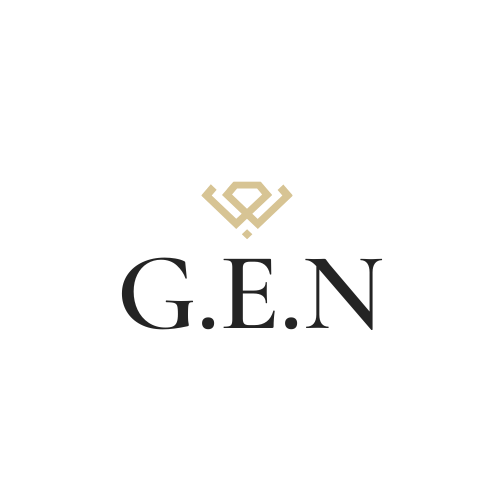Xiaoman (小满), meaning "Lesser Fullness," is the 8th of the 24 solar terms in the traditional Chinese calendar. It usually occurs around May 20th in the Gregorian calendar when the sun reaches the celestial longitude of 60°. As the second solar term of summer, Xiaoman signals rising temperatures, increased rainfall, and the vigorous growth of all things. This article explores the relationship between Xiaoman and the principles of Feng Shui and Bazi (Four Pillars of Destiny) from a metaphysical perspective.
1. The Meaning of Xiaoman in the Solar Term System
a. Climate and Natural Changes
-
Xiaoman signifies that the grains of summer crops are starting to plump but are not yet fully ripe—"small fullness."
-
The climate becomes hot and humid, rainfall increases, and yang energy (陽氣) grows stronger.
b. Yin-Yang and Five Elements (Wuxing)
-
This is a phase where yang energy is dominant and yin is in decline.
-
The solar position is in the middle to late part of the Si (巳) month, which corresponds to the fire element in the Five Elements system.
-
The fire element, especially Bing Fire (丙火), begins to intensify, signaling the peak of summer fire energy.

2. Xiaoman’s Role in Bazi (Four Pillars of Destiny)
A person's Bazi is composed of the Heavenly Stems and Earthly Branches of their birth year, month, day, and hour, calculated based on the solar term system—not the Gregorian or lunar calendar.
a. Xiaoman as a Dividing Line for Month Pillars
-
In Bazi, the Month Pillar changes not on the 1st of the month but at the time of solar terms.
-
People born before Xiaoman still belong to the Si Month (巳月), while those born after Xiaoman enter the Wu Month (午月).
-
This distinction significantly impacts the structure of a person's destiny chart, particularly regarding the Ten Gods, useful elements (Yongshen 用神), and overall energy dynamics.
b. Elemental Shifts in the Bazi Chart
-
Around Xiaoman, fire energy increases, affecting charts with dominant fire, wood, or weakened water and metal.
-
Those with charts that favor fire may benefit more when born around this time—stronger vitality, leadership, and drive.
-
Conversely, those with excessive fire may experience imbalances such as impulsiveness, health issues related to the heart or liver, or lack of grounding.
c. The Role of Useful Elements and Climate Adjustment (Tiaohou 调候)
-
In classical Bazi, "Tiaohou" refers to adjusting a chart's thermal balance (hot or cold).
-
After Xiaoman, temperatures rise, and water becomes a preferred regulating element.
-
If a chart has excessive fire, this season provides opportunities for better elemental balance if water is well-placed.

3. Feng Shui Correspondence with Xiaoman
a. Seasonal Energy and Spatial Orientation
-
Feng Shui emphasizes harmony between time and space. During Xiaoman, the energy of the south (Li Palace, 離宮) becomes highly active due to the fire element.
-
Excess fire in the home may need balancing with water or wood elements, such as water features, green plants, or cooler color schemes.
b. Feng Shui Suggestions for Xiaoman Season
-
Avoid overly red or fiery decorations indoors.
-
For those whose personal charts favor water, consider placing water-related items (e.g., fountains, aquariums) in the southeast area of the home.
-
For businesses, align with the productive energy of fire generating earth—industries related to real estate, agriculture, or construction may benefit.
4. Traditional Beliefs and Metaphysical Symbolism
a. "Lesser Fullness, Not Overflowing"
-
Ancient Chinese wisdom advocates for balance—Xiaoman symbolizes moderation, not excess.
-
Likewise, in Bazi, excessive dominance of any one element is considered inauspicious. Balanced charts are generally more favorable.
b. Health and Spiritual Harmony
-
This season is prone to heat-related imbalances such as inflammation or irritability.
-
People with fiery charts should prioritize rest, hydration, and cooling diets, which also align with good Feng Shui health practices.
Summary Table
| Aspect | Connection to Xiaoman |
|---|---|
| Solar Term Shift | Xiaoman marks the change in the Bazi Month Pillar. |
| Five Element Influence | Fire strengthens, influencing the chart's elemental balance. |
| Feng Shui Dynamics | South becomes fire-dominant; balance with water/wood elements. |
| Personal Destiny Impact | Fire-favoring charts benefit; others need moderation strategies. |
| Holistic Balance | Emphasizes "fullness without excess"; promote harmony. |
Final Thoughts
The solar term Xiaoman, though lesser known in the West, plays a pivotal role in both Bazi destiny analysis and Feng Shui timing. By understanding its elemental qualities and symbolic meanings, we can better align our environments, decisions, and energy with the rhythms of nature. Whether for personal growth, health, or business, Xiaoman reminds us to appreciate progress, but not to overreach—balance is the key.
If you'd like a personalized Bazi reading based on your birth date and time, I’d be happy to help you explore your own elemental balance and how Xiaoman may influence your chart. https://genbeads.com/pages/free-bazi-analysis



